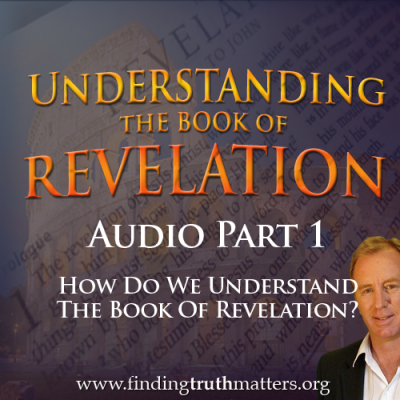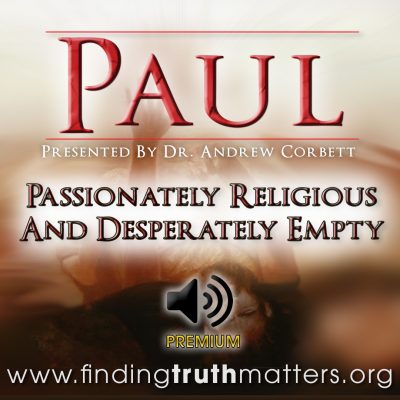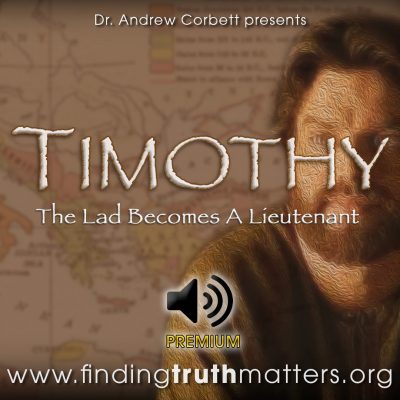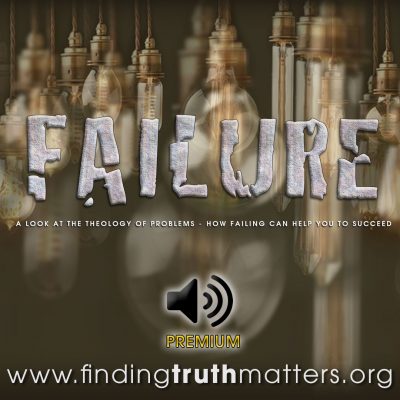home > articles > Pastoral > The Search For Significance
What is the point? For many people the point to life is success. For others it’s the accumulation of wealth. Still for others it’s about maximising happiness and pleasure. We are all looking for significance. In ancient times there was a man who was unbelievably wealthy. In today’s terms his income was a staggering $1,153,846 – a week! He boasted about sexual exploits with over one thousand women – and he received a level respect for his intellect that garnered for him worldwide acclaim. Yet along the way he declared that it was all meaningless (“vanity”).



But then toward the final moments of his life he realised that it wasn’t success and acclaim that he was living for – but significance. Solomon the King had long ignored the safety and protection of Wisdom’s walls and plunged blindly off them into the Siren’s deep pit of false success, where the mire of false wealth and the fallacy of fame had already seduced other royal greats.

 What on earth are you here for? There is deep need within every person for significance. King Solomon had at his disposal everything that most men applaud and many men strive for. He had virtually unlimited wealth. He had his choice of over a thousand women to do with whatever brought him pleasure. He was able to oversee great civil constructions and building programs and apply his energies to achieving satisfaction from his work. He had a gifted intellect that enabled him to apply himself to learn complex lessons in the fields of engineering, agriculture, botany, music, biology, religion, and philosophy.
What on earth are you here for? There is deep need within every person for significance. King Solomon had at his disposal everything that most men applaud and many men strive for. He had virtually unlimited wealth. He had his choice of over a thousand women to do with whatever brought him pleasure. He was able to oversee great civil constructions and building programs and apply his energies to achieving satisfaction from his work. He had a gifted intellect that enabled him to apply himself to learn complex lessons in the fields of engineering, agriculture, botany, music, biology, religion, and philosophy.
He tells his story in the Biblical book of Ecclesiastes. In this somewhat novel telling of his journey, Solomon describes his distorted view of the world at the time of his life when he was drifting further and further into deception. This divinely inspired account accurately records this man’s skewed assessment of reality. The reader should note this before they cite any verse from Ecclesiastes as a proof-text for ideas generally foreign to the Bible. For example, in the midst of Solomon’s backslidden state he felt that “money is the answer for everything” (Eccl. 10:19). Money is not the answer to every problem. Other Scriptures warn against relying too heavily on the money (for example, 1Tim. 6:10). Thus, great care should be taken when citing verses from Ecclesiastes.


Appearances can be deceiving. Often people who seem to have it all – or at least, seem to have it all together, don’t. King Solomon had everything that most people think would significantly satisfy. Yet, (there’s nearly always a ‘yet’) many highly successful people are driven by a deep ache. It’s not uncommon for a high-achiever to reach a stage where they ask, “Why am I doing this?” “What am I really doing that makes a difference to the world?” Success often masks emptiness.

 By any measure, King Solomon was a success. But his was an empty success. Despite his massive wealth he still couldn’t buy what he was really after – what we’re all after. And he’s not alone. Many people have attained the pinnacle of success and earned phenomenal amounts of money, only to find they were the worse for having done so. For example, former NBA, Antoine Walker amassed a whopping ten million dollars during his basketball career, but by the time he was 38, it was all gone and he was in debt. Living the high-life, women, gambling, free-loaders, bad investments, drugs and alcohol, often combine to ruin elite professional sportsmen like Antoine. History tells us that most people cannot handle success well.
By any measure, King Solomon was a success. But his was an empty success. Despite his massive wealth he still couldn’t buy what he was really after – what we’re all after. And he’s not alone. Many people have attained the pinnacle of success and earned phenomenal amounts of money, only to find they were the worse for having done so. For example, former NBA, Antoine Walker amassed a whopping ten million dollars during his basketball career, but by the time he was 38, it was all gone and he was in debt. Living the high-life, women, gambling, free-loaders, bad investments, drugs and alcohol, often combine to ruin elite professional sportsmen like Antoine. History tells us that most people cannot handle success well.

 It’s easy to confuse success with significance. It’s easy to think that success alone can satisfy. But King Solomon’s journey, and the pain he endured from relentlessly pursuing success nearly at the cost of his soul, is still relevant for anyone today and stands as a warning for all who fail to heed his conclusions. The most significant man who has ever lived gave a similar warning (without ever having inflicted such similar pain on Himself as Solomon did) when He asked what the point of temporary success was if it meant eternal damage to one’s soul? This was the nearly too late conclusion that Francis Thompson reached. He was from a wealthy family, he graduated as a doctor from Owens College (University of Manchester). But he never practised as a doctor – moving to London instead to pursue his dream of becoming a writer. But he fell on hard times and became a homeless opium addict living under a bridge at Charing Cross. He was taken in by a prostitute who nursed him back to health. In his ache for significance he encountered the relentless love of the Undying One, and taking an old pencil and scrap of paper, he wrote an epic poem about his journey.
It’s easy to confuse success with significance. It’s easy to think that success alone can satisfy. But King Solomon’s journey, and the pain he endured from relentlessly pursuing success nearly at the cost of his soul, is still relevant for anyone today and stands as a warning for all who fail to heed his conclusions. The most significant man who has ever lived gave a similar warning (without ever having inflicted such similar pain on Himself as Solomon did) when He asked what the point of temporary success was if it meant eternal damage to one’s soul? This was the nearly too late conclusion that Francis Thompson reached. He was from a wealthy family, he graduated as a doctor from Owens College (University of Manchester). But he never practised as a doctor – moving to London instead to pursue his dream of becoming a writer. But he fell on hard times and became a homeless opium addict living under a bridge at Charing Cross. He was taken in by a prostitute who nursed him back to health. In his ache for significance he encountered the relentless love of the Undying One, and taking an old pencil and scrap of paper, he wrote an epic poem about his journey.
I FLED Him, down the nights and down the days;
I fled Him, down the arches of the years;
I fled Him, down the labyrinthine ways
Of my own mind; and in the mist of tears
I hid from Him, and under running laughter.
Up vistaed hopes I sped; And shot, precipitated,
A down Titanic glooms of chasmèd fears,
From those strong Feet that followed, followed after.
But with unhurrying chase,
And unperturbèd pace,
Deliberate speed, majestic instancy,
They beat—and a Voice beat More instant than the Feet—
‘All things betray thee, who betrayest Me.’
Deliberate speed, majestic instancy,
Came on the following Feet, And a Voice above their beat—
‘Naught shelters thee, who wilt not shelter Me.’
All which I took from thee I did but take,
Not for thy harms,
But just that thou might’st seek it in My arms.
THE HOUND OF HEAVEN, by Francis Thompson
 There is an ache in every human soul for significance. Significance in life is that sense that what a person does really matters and will matter even after they are gone from this life. The God who made us also made us for His pleasure and it is when we do what pleases Him that we discover true and lasting significance. This always involves helping others. Living a significant life is a considerate life. It often involves sacrifice for the benefit of others. It has the potential to outlive the life of the one who lives significantly. The outstanding message from Solomon’s account of his journey from success, fame, pleasure, to significance is that it is never too late to find peace with God and to begin a life of significance. But there is also a message that should be heeded as a warning from this same journey.
There is an ache in every human soul for significance. Significance in life is that sense that what a person does really matters and will matter even after they are gone from this life. The God who made us also made us for His pleasure and it is when we do what pleases Him that we discover true and lasting significance. This always involves helping others. Living a significant life is a considerate life. It often involves sacrifice for the benefit of others. It has the potential to outlive the life of the one who lives significantly. The outstanding message from Solomon’s account of his journey from success, fame, pleasure, to significance is that it is never too late to find peace with God and to begin a life of significance. But there is also a message that should be heeded as a warning from this same journey.


Solomon eventually discovered what his soul was aching for just prior to his death. Perhaps just months or maybe even weeks before he died, having learned that wealth, women, work, or wine, could not satisfy or fulfil, he realised how a person could live significantly. With such a profound discovery coming so close to the end of his life, Solomon was never able to develop his soul with the level maturity or godliness (a God pleasing lifestyle which shapes a person’s character to more accurately reflect the heart of God) that God intends for a person.

Godliness is formed over years of faithful and significant living. It can only be formed through trial and adversity. It is in the midst temptation to sin that true godliness is needed to demonstrate to a watching world – but more importantly – to an on-looking God, that God is treasured above any other pleasure. The Apostle Paul talks about this process of developing godliness to his young protégé Timothy when he tells him –
For while bodily training is of some value, godliness is of value in every way, as it holds promise for the present life and also for the life to come.
First Timothy 4:8

In the closing chapter of Ecclesiastes, Solomon describes how his body has aged. He has lost hair, teeth, part of his hearing and control over his bladder. His eye-sight has deteriorated. His back had suffered nerve damage and he was blighted with resultant insomnia. Without the full use of his bodily functions, he was unable to achieve the level of significance that he might have – especially as a man with his position and resources. To whom much is given, much is required. As he stared one of life’s great certainties in the eye, he came to realise life’s greatest certainty.

Solomon concludes with the profound words of an aged sage directed at a much younger audience.
¶ The end of the matter; all has been heard. Fear God and keep his commandments, for this is the whole duty of man. For God will bring every deed into judgment, with every secret thing, whether good or evil.
Ecclesiastes 12:13-14
A life significance starts when a person surrenders their life God and experiences peace and reconciliation with God. It is King Solomon who reminds us that you can never go too far from God, or rebel too much, that God cannot even then demonstrate His limitless love and corresponding ability and willingness to forgive the repentant. You are not a million miles from God, you are but one prayer away. By turning to God in prayer and receiving His forgiveness you can begin to live a life of significance. And the younger you are when you do, the better your chances of leveraging this significance by developing your walk with Christ as your Saviour and Lord.




© Andrew Corbett, 23rd February 2015, Legana, Tasmania
This article may be freely distributed or copied provided that attribution is given to the author and this website. The graphics in this article may also be freely used in sermon Powerpoint/Keynote presentations.
-
Sale!

Understand The Book Of Revelation, Part 1 (Radio Edition)
$0.00 -
Sale!

Living By Virtue, Part 4 – By Virtue of Generosity
$0.00 -
Sale!

Paul Part 1, Premium Audio
$0.00 -
Sale!

Timothy Part 2, Premium Audio
$0.00 -
Sale!

The Problem Of Failure, Premium Audio
$0.00 -

The God Series Part 6 – God The Father, Premium Audio
$0.00







































0 Comments